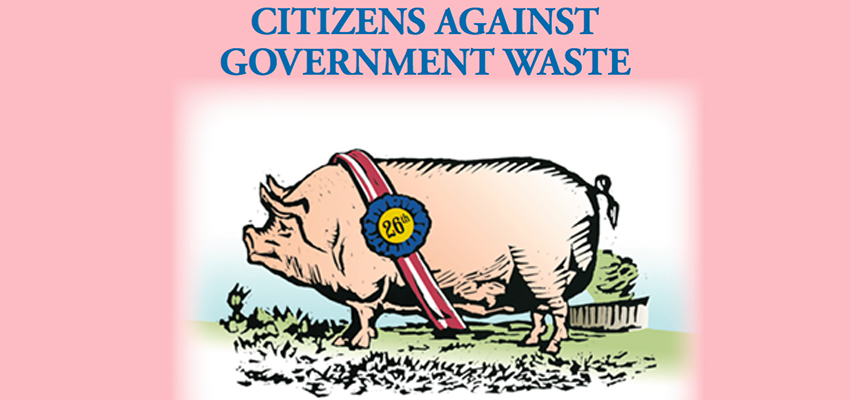
Taxpayers on the hook for $14.7 billion in pet projects
MacIver News Service | July 31, 2018
MADISON, Wis. – The 2018 federal budget didn’t just shatter spending caps – it also features record-breaking numbers of pork projects and earmarks.
Citizens Against Government Waste (CAGW) released their annual Pig Book on Friday, exposing egregious wastes of taxpayer money in the form of pork projects in the federal budget. Overall, the cost of earmarks skyrocketed to $14.7 billion in 2018 – an unprecedented and ill-advised increase of 116 percent since just last year.
The federal government’s 2018 budget more than doubles earmarked spending compared to the prior year. This year, taxpayers are on the line for $14.7 billion in pork projects.
Some would argue that earmarks allow legislation to pass, but even a brief glance at the pork projects themselves shows that federal earmark spending is bloated, ineffective, and even counterproductive.
This significant taxpayer expense also comes with a troubling lack of transparency. Back in 2010, each earmark detailed its recipient and the member of Congress responsible. In 2018, however, exact information about sponsors and recipients is no longer required.
To understand why transparency is crucial, consider the $13 million allocated to the Save America’s Treasures (SAT) grants program to preserve historic locations nationwide. In recent years, there have been several high-profile cases of Congressmen improperly using SAT grants, a practice undoubtedly made easier by lifted transparency requirements.
The earmarks are not just vague, however – many are entirely superfluous, given that private donors and consumers could just as easily fund their projects.
One example is the National Capital Arts and Cultural Affairs (NCACA) grant program, which provides funding to arts and cultural institutions in the nation’s capital. NCACA received $2.75 million in 2018, but it could be completely self-sustaining without this grant if its institutions charged just cents more for admission.
In fact, certain federal earmarks actually impede the operation of the free market by eradicating its very foundation – competition.
Consider the $54.65 million allocated to entrepreneurial development programs within the Small Business Administration. By selecting and promoting certain companies, this federal funding makes it substantially more difficult for the best businesses to beat out their competition, as they would in a free market economy.
Much of the massive increase in earmark spending can be attributed to projects in which individual costs have swelled beyond recognition.
Look no further than the Joint Strike Fighter (JSF) program for a project defined by staggering costs and terrible execution. In 2018, the Department of Defense will spend $2.7 billion on 20 additional JSF aircrafts, even though the aircraft are 7 years behind development schedule, will cost up to $1 trillion in their lifetimes, and, according to a recent report, may not even be functional in a war.
As Sen. John McCain (R-Ariz.) so aptly said, this program is “both a scandal and a tragedy” – though his words describe the entire batch of 2018 earmarks just as well.
Wisconsin taxpayers won’t find any state-specific examples in this year’s Pig Book, but federal taxes force everyone to bear the burden of wasteful government spending.
Ultimately, budgets are a matter of priorities. With unnecessary pork projects costing taxpayers billions of dollars, it’s really no wonder that government continues to grow.